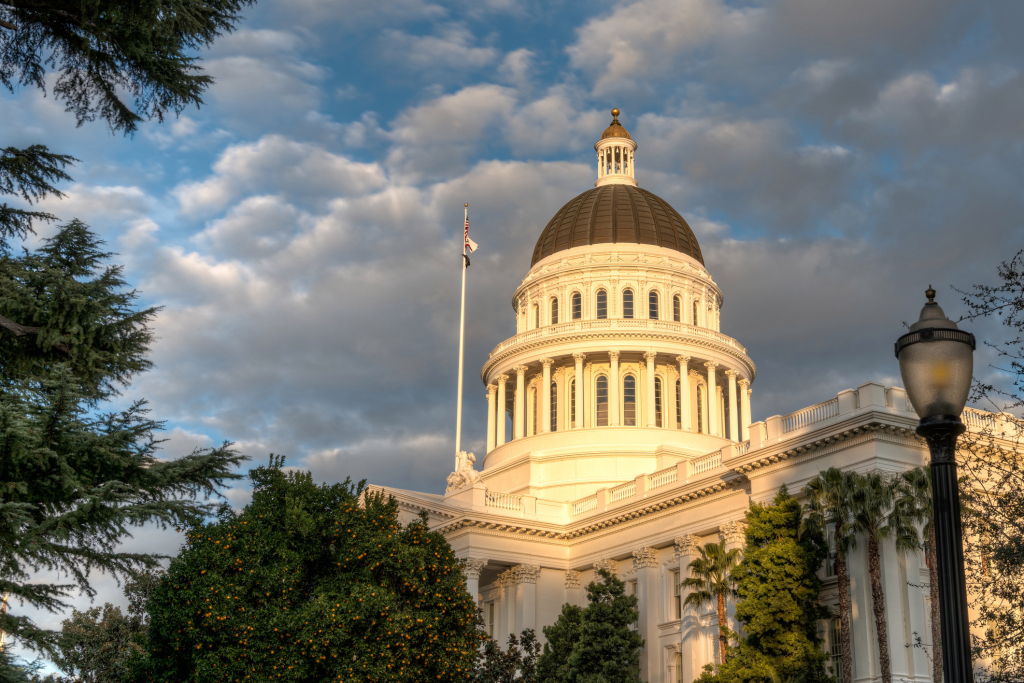Somewhere in a parallel universe, 2020 is the year California finally took steps to tackle its housing crisis and end homelessness.
That’s how the year began. But in our universe, that’s not how things turned out.
When 2020 began, Gov. Gavin Newsom and top lawmakers vowed they were going to pass a “production package,” pulling together a collection of bills to build duplexes in single-family neighborhoods and streamlining high-density zoning for small projects and affordable housing on church or nonprofit college land.
“It’s time for California to say yes to housing,” Newsom said in his February State of the State address.
Then the coronavirus pandemic hit and the California Legislature closed down — twice. Now with the legislature set to adjourn Aug. 31, the final push is underway to get some housing bills across the finish line to Newsom’s desk.
And indeed, some bills conceived in the early days of 2020 are advancing.
Others bit the dust.
For example, three bills to boost homeless programs failed to pass, including a bill to spend $2 billion annually on homeless programs, a bill to create permanent funding for homeless programs by eliminating state tax deductions on second homes and a bill requiring local governments to reduce homelessness 90% by 2028.
Bills seeking to approve housing on commercially zoned land also failed to survive, as did measures to allow denser and taller developments in some areas without city council or board of supervisors reviews and to allow parcels to be rezoned for small developments without environmental reviews.
They were victims of the coronavirus pandemic, to be sure. But progress also got derailed by disruptions that shut down the legislature, a lack of funds and the usual infighting between interest groups, housing policy experts say.
“Frankly, this legislative session is turning out to be a disappointment in terms of housing production policy,” said David Garcia, policy director for UC Berkeley’s Terner Center for Innovative Housing. “There simply was not enough bandwidth to take care of housing bills as usual.”
Ultimately, the pandemic “reduced the amount of time people had to make deals,” said Brian Hanlon, president and chief executive of California YIMBY, a pro-housing organization. “The bills passing this year are good bills, but they don’t come near to the scale of addressing the housing crisis in California.”
The fate of many key bills still hangs in the balance during the waning days of the session.
For example, the state Senate Judiciary Committee spent more than five hours last week deliberating a bill aimed at banning evictions. The committee received hundreds of calls for and against the measure.
Here are highlights of key housing bills that remain this session:
Evictions
Assembly Bill 1436:Tenants who couldn’t pay their rent during the coronavirus shutdowns didn’t have to worry about getting evicted — until now. The state Judicial Council, which oversees California’s court system, had issued an order freezing most court eviction cases.
But the council recently voted to end its eviction ban Sept. 2, leaving state lawmakers with little more than a week to adopt their own moratorium to protect an estimated 4-5 million renters from losing their homes.
AB 1436 would halt evictions for COVID-related financial hardships until next April or until three months after the current state of emergency ends, whichever comes first, then give residents an additional 15 months to repay back rent. The bill also provides 6-12 months in mortgage forbearance for landlords and homeowners.
The bill’s supporters argued during the state Senate Judiciary Committee on Tuesday, Aug. 18, that the state must take action to prevent millions of families from becoming homeless and ending up in tent cities. And the landlords still won’t be able to collect the unpaid rent once they’re evicted, they said.
“If we don’t act in the next two weeks, there will be potential catastrophic consequences, and this is frankly our last chance to take action to stop a massive wave of evictions and foreclosures,” said the bill’s author, Assemblymember David Chiu, D-San Francisco.
One criticism of the bill is it doesn’t provide any funding for landlords unable to collect rent from their tenants, including affordable housing providers. Chiu acknowledged he worries “this bill will not be enough.”
Debra Carlton, a vice president for public affairs for the California Apartment Association, told the Senate committee that AB 1436 threatens the livelihoods and properties of small landlords, about a fourth of whom had to borrow money to pay bills, she said.
“There is no way rental property owners can wait until 2022 to receive the unpaid rent, which this bill requires,” Carlton said. “The owners will lose their rental units, and the tenants will eventually lose their homes.”
On Thursday, the bill was moved to the Senate Rules Committee. Talks were underway between the bill’s authors, the governor’s office and industry about possible revisions.
Senate Bill 1410, which would have provided tax credits to landlords to cover missed rent payments, died in committee Thursday.
Boosting homebuilding
The 2020 legislative session got off to a rocky start with the early failure of Senate Bill 50, a bill promoting high-density housing near transit stops and job-rich areas.
But by May and June, state leaders pulled together a new housing “production package” promoting duplexes, four-plexes and streamlined approval for some housing. Among them:
SB 1120: Building on the success the state had with “accessory dwelling units,” or granny flat bills, Sen. President Pro Tem Toni Atkins, D-San Diego, introduced a bill allowing duplexes in single-family neighborhoods that can be rented or sold.
The bill allows property owners to subdivide their property in single-family neighborhoods and build duplexes “as long as the units meet existing community standards and protections,” Atkins said at a recent committee hearing.
A recent analysis by the Terner Center found nearly 6 million single-family parcels in the state are big enough to qualify for a lot split under SB 1120. If just 5% of those parcels added a second unit, the report said, that would create nearly 600,000 new homes.
Those homes would be more affordable because they would be smaller, Atkins said.
“Never before has affordable housing been such a critical issue. It was before the pandemic. It remains so,” Atkins said.
Hanlon, the YIMBY president, said SB 1120 will do for homeownership what new ADU laws did for renters.
“Since it lets you subdivide the lot, you can own the home. You can get a mortgage,” Hanlon said. “It’s just like a normal single-family home, but it’s smaller.”
Among the opponents, however, was Beverly Hills City Councilman John Mirisch.
“This bill is a war on single-family homes,” he told an Assembly committee. “Wall Street, the real estate industry and the market are salivating over this bill because it fuels speculation and uses housing as an investment.”
SB 995: Lets smaller housing projects streamline their California Environmental Review Act, or CEQA, review process. At least 15% of the units must be affordable.
Density
AB 2345: Patterned after a San Diego law, the bill would allow developers to add up to 50% more housing units to their project, instead of a maximum of 35% more units, in exchange for including more affordable housing.
SB 1085: Also provides increased incentives for providing more affordable housing.
AB 725: Seeks to increase the amount of land zoned for moderate-income households by requiring cities to allocate a fourth of its moderate- and above-moderate income housing to sites zoned for four-plexes.
AB 1851: Reduces parking requirements for housing projects on land owned by religious institutions.
Homeless bills
AB 1845: Would create an Office to End Homelessness and a Secretary on Housing Insecurity and Homelessness, which would be in charge of overseeing all homelessness programs in the state.
AB 2405: Would create a statewide strategy for preventing and solving homelessness for families and children and make it state policy starting in 2026 that everyone has a right to housing.
AB 2746: Creates accountability and reporting requirements for state-funded homeless programs.










